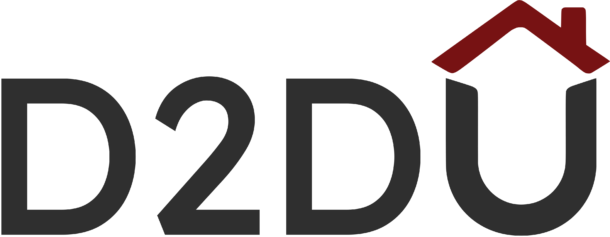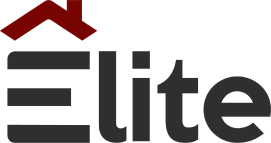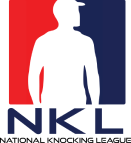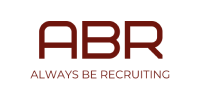Speaker 1: (00:02)
Bill, Can I help you?
Speaker2: Hey listen up, I’m bringing you the best content to ever exist in the door to door industry from sales leadership, recruiting, impersonal development.
Speaker 1:
Why would I need that?
Speaker 2:
Because never before have we been able to collaborate with the top experts in their industries, sharing their secrets and techniques and what makes them the best.
Speaker 1: Wait, who? Who are you?
Speaker 2:
I’m your host. Sam Taggart, creator of the D2D experts in D2Dcon. Is there a place we can sit down?
Speaker 1:
Well come on in.
Speaker 3:
Vanilla is the fastest way to increase your Google and Facebook reviews through text with a 98% open rate. Vanilla reviews is the simplest cheapest way to interact and engage with customers. Visit us at vanillagood.com for more information.
Speaker 3: (00:48)
Hi everyone, this is Sam Taggart and I am here with Julian Van Der Waal coming at you. He is all the way from Adelaide and this is my farthest guest Australia. So he is like, what? What time is it?
Speaker 4:
8.30 right there.
Speaker 3:
Yeah. Anyway, we pushed back to like five o’clock our time cause it’s like he’s like a day behind us. I’ve already lived our day ahead of us, one of the two. But anyways, so international guest and anyway, so I invited him out, he hit me up on Instagram and we were chatting about kind of international door to door and kind of what’s outside the US you know.
I’ve actually connected with people in Sweden and Australia now and UJ Africa, China, Japan. It’s crazy. We’ve got door to door actually quite a big thing out of the country. And this is our first international, if you don’t count Canadian guests and I, and, and I’m actually curious on this podcast to really dive into some of the, you know, differences, similarities, like what it’s like out there.
Speaker 3: (01:52)
You know, you probably have your own culture, your own response from consumers, stigma about the industry. We’re gonna kind of dive into that, but we’re also going to dive into a, you know, just really, he now consults, um, companies and he ran for seven years. He ran his own companies and built, you know, over 250 people and in the fundraising and nonprofit and telecommunication and has many years of sales expertise and now goes and coaches and consults clients on selling product and process and how to optimize their sales strategies, um, over in Australia. So I’m sure that it’s people are people, they’re probably the same. They’re that as they are here, they deal with the same objections, the same as it stations and buying thresholds. And it’ll be interesting to kind of jam internationally on this. So, um, but before we dive into this, um, for those that aren’t familiar with door to door icon or that are listening to this January 16th to the 18th, we have our event nationally in Salt Lake City, Utah.
Speaker 3: (02:53)
So just make sure to go register tickets are on sale now at duty conduct come and they go every month, $25. So don’t wait to go into your ticket and super excited. See you and your team there. But I hope Julian comes out from Australia to come hang. Maybe I’m doing a workshop or something and learn from the, from the master, the master himself. He is the Sam Taggart of Australia, I’ve found out. So he is the, she is out there anyways. So, so tell us a little bit about your history. I mean, when do you get started? How’d you get started? When did you sell, tell us a little bit about kind of your, how you cut your teeth and DDD and face to face selling,
Speaker 4: (03:32)
right? Yes. Yeah. So basically when I was about 18 and a half, I uh, fell 18 just to end it and I found the nightclubs in the Gold Coast. So anyone that’s been to Australia and been to the sunny gold coast, sunny Queensland, the Gold Coast is very much a distracting place if you’re trying to focus on creating success in your life. But anyway, say, and so for bad per year and a half, I, uh, I mucked around the nightclub scene and kind of worked in and out of clubs and stuff like that. Nothing really major, some promotional work here and there. And then I thought, I better get my shit together. And got into some door to door. So answered an ad in the paper at that time. That’s uh, we’re talking 18 years ago now and it said Sports Mont and people wanted, and I did a lot of sports as a kid growing up cycling and try and probably try to every
Speaker 3: (04:21)
the same kind of people. I always tell people, go recruit the athletes that love it.
Speaker 4: (04:28)
Sure. We’re used to being competitive and I suppose disciplines played a massive part in the success that we’d be able to create. And then one of the, and then got into face to face, found it fairly easy. For the most part, I don’t find styling difficult. Um, and literally in the first two weeks I was in the top five in the country for literally brand new people in the top five. So I thought, well, maybe I’m half decent list. Did a free year and a half. And really as I was trying to build a business or trying to go to the team, I really wasn’t the person that was able to recruit a really good person. What I was able to do was recruit myself. Okay. And myself was great. Hello?
Speaker 3: (05:14)
Yes. Kids, you have
Speaker 4: (05:16)
a three.
Speaker 3: (05:18)
Hey, I’ve got my third one on the way. Congrats man.
Speaker 4: (05:20)
We’ve got number four on the way. So they go, that must be as I always say that the best hours people get the most beautiful wives. So there you go. Um, yeah. And then for a year and a half I really sort of battled with the people that I was actually able to recruit and literally 20 years ago, the business are very different sort of based, you know, it was very much where we’re working for the weekend. We would kind of, you know, we are talking 20 years ago we’d almost do almost anything without being unethical. Anything to the south. Like we would jump, we’d go on an eighth, you know, we walked through, um, gates, we would try and, uh, get through unlocked doors to got to highrises and like anything we would do to get in the building to make money. We, right now it’s a very different model where it’s, my show is small, let’s say professional 20 years ago, right?
Speaker 4: (06:15)
So 20 years later. So, but I really enjoyed that, you know, like I said, jumping fences and following cars into apartment buildings and that, that was, that was cool. That was fun. So, and then I really couldn’t, like I said, I couldn’t find, uh, myself and create the right environment for, for business to be built upon. So I left the industry and then got into cooking and then did that for four years, did a four year apprenticeship in 13 months and then took over the restaurant three days after that. And then I, uh, we sold the restaurant and got back into sales and then three years off of that, I’ve known the company down here in Adelaide. So, um, yeah, that’s, it’s been 20 years. There you go.
Speaker 3: (06:57)
So what types of industries are the big industries in Australia? Like what do people sell typically? Like
Speaker 4: (07:04)
a solas dripping off a little bit at the moment. Uh, fundraising is pretty big. Um, a charitable
Speaker 3: (07:12)
two years and that’s why I’m like, what are they fundraise like
Speaker 4: (07:16)
for charities? So for, let’s say Red Cross contains stuff. Last I have is, um, yeah, probably, probably the biggest organizations in the country definitely use this model to, to fundraise and increase their own revenue. And where I think a lot of people go wrong, especially in the charitable and the fundraising industry is what then what is kind of like, um, I’m trying to think of a business that would be in the u s and North America that would be similar to here. So we’ve got a, we’ve got to stalk or Harvey Norman and Bicycle Da. Do you have someone like that and my, probably a Walmart’s or something.
Speaker 3: (07:53)
Yeah, Walmart. Yeah. So yeah. Yeah, probably similar.
Speaker 4: (07:58)
Probably similar to that. So basically what it is, it’s anything you can get for your house, your couches, uh, mattresses, bedrooms, weights, TVs. It’s literally what goods and brand goods and it’s every, every bicycle, everything. So a lot of people were saying, actually let’s use McDonald’s much, much easier cause it’s, it’s systemic across the world. So McDonald’s, most people think that McDonald’s business model is selling burgers and hot chips. Essentially it’s real estate, right? So, and the same sort of front end versus back end processes from a non for profit. A lot of people think that the non-for-profits businesses to generate a is to help out people, which, which it definitely is. But really what they don’t understand is that their real business is to generate revenue. That’s the business the same as any other company. The any differences. They can’t incentivize people for joining them, uh, due to, they can’t give money away.
Speaker 4: (08:56)
Like you can’t sign up to a charity for 12 months and get one month for free. Like you could, you know, at a gym. Yeah. Very, very difficult to acquire customers because you can’t incentivize then coming on board. You can’t run a promotion. The Janrain. So there’s almost like, so it’s very, very deep. And then also from the, from the consumers point of view, from the public’s point of view, they don’t want money to be spent on advertising from a charity cause they should be spending money on the causes. And if they don’t, yeah. But if that and spend money on the advertising, how would you know what the cause does? Good point. There’s a huge disconnect in where the money is spent, how the money is spent, and essentially what happens is as I known from profit ventures into marketing strategies to acquire more customers, which is what they need to do. Well if the marketing campaign doesn’t work, then the media really jumping on them and kind of crucify them because they’re actually wasting money, which essentially stops innovation and essentially stops marketing, which means at some point that charity, one of profit will no longer exist.
Speaker 3: (10:15)
Yeah,
Speaker 4: (10:16)
that’s a very, it’s a very, very .
Speaker 3: (10:20)
Yeah. So would you not yours in San Antonio for like a a tool month subscription or would you do like, Hey, I’m want to donate, I can take five months or 5,000 bucks. It’s up to you. Like,
Speaker 4: (10:31)
yes. So, so obviously regular donations is much, much better for the non for profits. The reason for that is they, they kind of know how much has come second budget. So yes, the one off donations are fantastic. You’re going to get little spikes or you run, let’s say a lottery for instance, and you and you get rid of a house, the house costs $1 million. You raised $2 million in, in lottery tickets, but every year you either got to build and selling the house, there’s no bites on every correct. So the recurring revenue is much, much easier for the nonprofit to budget. That way they can actually invest properly into the causes that we know and love.
Speaker 3: (11:13)
And people you knock on their door or you talk to them or whatever and you’re like, hey, you want to donate to this cause because it’s awesome. And they’re like, yeah, basically. I mean I’m doing that super watered down, but that’s,
Speaker 4: (11:25)
you might get a sense or a z.
Speaker 3: (11:27)
Yeah, but I’m just saying you’re selling them on a cause at that point, right?
Speaker 4: (11:33)
Absolutely.
Speaker 3: (11:33)
Oh, that is cool. So what are some of the cool ones that you feel like you’ve gotten behind that you’re like, man, I’m raising money for X. Yeah,
Speaker 4: (11:40)
kid’s cancer. Are we going to local hospital down here that we’ve raised a lot of money for, you know, probably five, $6 million, which has been amazing for them.
Speaker 3: (11:49)
Um, he’s done campaign. If you’re listening to this, he’s done campaigns that have raised over a million dollars like that. That’s a lot of money.
Speaker 4: (11:57)
Yeah. That’s the
Speaker 3: (11:58)
keep going. Sorry.
Speaker 4: (12:00)
Yeah. So you know, we’ve one at one client, it wasn’t just me that was quite a number of us at the time and it was called the spice of let’s say, uh, probably 10 years that we’re working with this one client in based out of Sydney and for the one client we raise 100 million one client I the 10 years.
Speaker 3: (12:19)
So we’ll do Clyde. So essentially is the business model. I’m going to go sell the non profit on using our door team to then generate them revenue. Yeah. Why does no one do that in the states?
Speaker 4: (12:35)
Okay. That I don’t, I know it. Yeah.
Speaker 3: (12:38)
I mean if you taught science and then you just take a percentage, I’m assuming.
Speaker 4: (12:41)
Yeah. Small percentage and this the same as well. People gotta understand it’s there very limited way that a non for profit can actually advertise. Right. Very Limited. And on TV, radio, billboards, the return on investment is very, very small.
Speaker 3: (12:55)
Yeah. It’s like one of the,
Speaker 4: (12:57)
and it’s not guaranteed, whereas for us it’s a bit more guaranteed.
Speaker 3: (13:03)
You pay when I collect.
Speaker 4: (13:04)
Correct. Yeah. That’s the contract that model’s changing to more employment, which in some way, um, what do you think? More difficult and more, more challenging for the, for the, for the non for, but yes, it’s been in that space for about 10 years now. So
Speaker 3: (13:21)
that is awesome. Um, okay, so let’s dive into this. Let’s dive into the sailing, the selling process. Cause I’m curious, um, so you teach a lot of your consulting clients and people, uh, kind of a model of really how to sell without selling. Um, what does that mean? Like how to sell without selling? Like I talked to you about this.
Speaker 4: (13:41)
So for the sales companies, you can be very much teaching them and it’s not just an overhaul, but it’s, you know, work with a lot of Telcos, like you said, um, solar industry. We worked on, um, we worked on some, um, selling financial services that are going to be to be selling credit cards. I’m personally myself, but I’ve definitely been in part of the organization that has a, so it’s not just nonprofits and let’s say if we’re talking about solar, solar panels, um, for instance, if you create so much value in the product, the price doesn’t matter anymore if your product, and we all know that, right? Anyone that’s listening to the podcast that seems style’s understands that. But what I really focused on is just a more comprehensive understanding that it actually is value oriented selling if you will, or propositioning mock me might be a better word once I’ve added so much value than the price essentially doesn’t matter if it fixes so many problems. Yeah. So and that’s in the clothes in the pre, pre that obviously in the qualification process it’s just about asking intelligent questions, which most styles people do not ask questions.
Speaker 3: (14:53)
Well give us some examples of intelligent versus non intelligent questions that are common things that you see.
Speaker 4: (15:00)
Yep. Yep. So an intelligent question for me would be anything that’s going to move the south forward as well. So perfect example is . Do you have any kids building rapport? Do you have any kids and intelligent questions? If especially go to the door, you can always tell. So I almost do it once you see the kids’ toys and the, and the scooters and the helmets and you don’t need to ask you if they got any kids. Okay. Right. So to me it would be a better question would be like, Hey Sam, um, obviously you can see as a couple of toys ran and how many little ones you’ve got yourself beautiful. But now you’re going to tell me I’ve got three or even a better question than that. If we are going and going deeper. So first of all is do you have any kids out of that? What’s the answer? Cause that can actually sound a little bit creepy. Do you have any kids? Like why would you want to know that?
Speaker 3: (15:53)
Yeah,
Speaker 4: (15:54)
if the, if the relationships up there first, then I can go to how many kids do you have? Oh, I can go straight to man, I can obviously get some toys around that. I’m sure they’re not all your scooters. Um, how do you little ones straight away now get a timeline of exactly how many kids you have, but how old they are. That’s a more important question to me as opposed to, do you have any kids, which you didn’t say already.
Speaker 3: (16:20)
Yeah. And I think some salespeople, it’s like, are you an area? Of course I have kids. It’s almost devaluing. You know what I mean? It’s an intelligent question. But we’ve programmed our brains to ask the low hanging fruit question instead of getting a little bit more intentional about, well yeah, how was it little ones running around, you know what I mean? Um, and it’s a more rapport building question. I love that. Any other examples of kind of more intelligent versus unintelligent questions you’ve seen effective in this?
Speaker 4: (16:52)
I mean, that’s probably the easiest one to run through with that worker. Um, uh, campaign, let’s say, or division, if you will, whether it’s solar or or whatever. What do you guys sell everyday?
Speaker 3: (17:04)
What do you guys, yeah, so big ones are solar pass control, satellite roofing and home improvement and security. Uh, water like water filtration is kind of moving into a big play energy. The big one. Yeah.
Speaker 4: (17:19)
We just had a whole water filtration company ourselves actually.
Speaker 3: (17:22)
Oh really? Yeah. I mean it’s kind of way of like they’ve made those cool products that really kind of make a good solution for um, you know, softening and filtration. So yeah. So those are of the main ones. So let’s pick like, yeah, pick quick water filtration cause you obviously know a little bit about it. Um, you know, Kinda what are some ways to really build, um, the price because you know, what do you sell it for typically? What a couple of,
Speaker 4: (17:50)
yeah, we’re the same process over here.
Speaker 3: (17:53)
Um, so you know, somebody to be like, you just knocked on my door, I’m going to drop in a couple of grand. Why? You know what I mean? They’ve gotta see some extreme value. And I think a lot of people, like you said, there’s kind of this piss poor, it really creating that value that’s going to over exceed their dollar. Right. Um, Yep. So you talked about kind of this three ours and I’m assuming that, you know, where, take me through kind of the three Rs that’s going to support your training on that.
Speaker 4: (18:24)
Yeah. So perfect. So three hours reaction response results. There’s actually three more, but that’s more as you leaving the door and come in resetting for the next thing. So rational response results, anything that I say and literally when I runs through pitches or people’s process or whatever, I will literally rip apart every single line and sentence and teach them the outcome and the bottling bridge and what I’m looking for as a return from the consumer and the prospect to move that south forward. Okay. So if I said perfect water filtration, um, have you noticed that you, you know, like to me an unintelligent question would be, have you noticed the smell of chlorine in your water? Now that seems like for water filtration. Quite a good question, but I know moving down to Adelaide, the water quality down here is actually pretty horrendous. So the first time I remembered, what’s that?
Speaker 3: (19:21)
You’re stating the obvious kind of again.
Speaker 4: (19:24)
Correct. But also no one smells water, right? Water is odorless and colorless. So yeah. Have you seen the sediment in the bottom of your water? I haven’t. So, so basically what’s going to happen is you’re going to shut down your own sales by asking the wrong questions. So part of water filtration would a a perfect question for me is, I don’t know if you know this because what I don’t want to do is insult the customers unintelligence yeah, I’m not too sure if you notice how you probably already know this, Sam, if I, that’s a compliment to your intelligence, which is a great compliment and probably one of the best ones you can give, right? You probably already know that, but I’ll just run. So basically, yeah, you probably already know in the war in the U S it’s about 60,000 chemicals, uh, in our water, it, that you’re doing research on.
Speaker 4: (20:18)
They said that, I said, it’s funny that you mentioned it from Coleraine too. Uh, chloramine six to land, to sediment, to rust to all those sorts of things. So this is in the water currently. Now chlorine is something that you need in the water because if you didn’t have chlorine in the water, then all the water would be full of bacteria. So that’s actually needed to keep the water at a drinkable level. But what’s not needed is when it gets into your house, you actually don’t need it any more because you want it fresh and pure out of the, out of the shower head. Yeah. And then, and then also, you know, the limescale that builds up on the window that’s due to calcium and your heavy, uh, a minerals in there. So, so that, that is, now I’m framing the problem around what the consumer has.
Speaker 5: (21:15)
So now it could happen. So, so in our asking and more intelligent questions, sometimes you have to put things in context, right? The question. So now the question may you formulate now that you’ve kind of put a framework, cause I think, I think a lot of people may go to an intelligent question, but it’s out of context because the consumer is still over here on Mars and year over year on Venus and it’s like
Speaker 4: (21:37)
exactly right man, keep going. So, so basically as I introduced myself, I want to make sure, and this is what I run through with the clause is as I’m speaking to that, to that consumer, the prospect, I need somebody to show that prospects with me hand-in-hand to understand the problem that they’re facing. And most people wouldn’t, uh, probably not problem aware. Right? And if they are and they’re solution aware, then it’s now just a price point. So they’ve already found two other water filtrations their thought about solar panels years ago. So sometimes understanding, you know, where else is then if you don’t mind me asking, where else have you. I thought about, you know, look, I’ve, I’ve known the water had been quality has been bad or I know I need solar on my roof. How long have you, uh, thought about solar? You’re full.
Speaker 5: (22:24)
I think a couple of years. You know, I’ve just, yeah,
Speaker 4: (22:28)
perfect. Intelligent question. Now I’ve got data of how much solar could have saved you in the last two years. No. Right? And now I’m adding. Yeah. So, and also let’s say, let’s say you don’t do anything about this for another two years now we double the loss of money and that’s four years. And now if I come back salmon in two more years time and you haven’t done any better, now you’ve lost, I dunno the electricity prices in America, but if it’s my house and it’s going to save me quite a lot of money that could say me now, it’s costing me eight grand in the last two years. Essentially, you could’ve paid for your system and now you could be literally living off the grid
Speaker 5: (23:14)
and helping them see that by connecting those dots. Because had you not asked, how long have you thought about it, kind of helps imply gonna be an idiot and keep thinking, are we going to do something on it?
Speaker 4: (23:26)
Correct. Exactly. Yeah. You know, oh, I need to think about it. But Sammy, you’ve thought about this for two years. Yes. It’s free as long enough to think about this fall or do you need some more time? And essentially that insulting the consumer, uh, nearly at a point where it’s like, okay, you know, you’ve already spent four grand, you know the systems, half pay lots, another two days. And literally how fast is the Tom Guy? Bye. How long does the last day’s gone? Oh, you know, my, my kids now three. Exactly. So when she’s five and you’ve now lost eight grand, do you think making a decision today would have been a good decision or should it come back and if any, on her fifth birthday and see how much money you could’ve saved. And we look back again on another four years, on two more years. There’s now four or a dragon now.
Speaker 5: (24:19)
Well, it can be applied to a lot of different industries. That simple kind of thought train that you can kind of take them on. Um, so can you tell me a little bit more about this whole react, respond, results kind of process that you take me in?
Speaker 4: (24:37)
Yeah. So if we break down the systems into introduction, your qualification, you’re presenting the product and then you’re closing. Everything that I say is a goal. A reaction. It’s reduced skepticism is to increase buyer’s confidence and buys a reduced buys resistance, increased buys acceptance. But to increase boss acceptance, you mean to reduce lives resistance? Best. Right. So let it go. We’re going gonna find us on hatch. You add more value, but the consumer’s thinking, you know, danger. I’m not, I’m not comfortable. This doesn’t feel right. There’s something wrong. Dah, Dah, Dah, Dah. Just don’t get a good vibe with that person.
Speaker 5: (25:15)
Yeah, I like that.
Speaker 4: (25:17)
So the consumer’s never going to say, you know what, Julian, I just didn’t see enough value in it. He didn’t really ask me enough questions to connect me to the cause and the close was just really washy. What did I say? Oh, I’m not interested.
Speaker 5: (25:34)
Wouldn’t it be nice? He’s like, well, Ya know, how’d you done a little bit better at questions? I did. Novice sales people think that that’s how it’s supposed to go. They’re like, dude, it’s so weird. I went through the sale at the end they told me they want to see about it. I just keep getting that like, yeah, that’s them telling you you suck at your job and you couldn’t closed yet.
Speaker 4: (26:03)
Yeah, exactly. Exactly. And for the Mars spot. Look, not everyone’s going to buy from you and you’ve got to understand that, but there’s still a percentage, a higher percentage for most of the products that are being sold around us that wouldn’t be sold in that format that most times I would say probably 80% of the population that you speak to potentially our styles now, whether they’re ready to buy right now or in the future or well into the future, but it’s just cultivating that relationship and a lot of people think door to door is called colon. I don’t believe that at all. And the reason for that, I don’t know how many times, how many laps you do a year. The same territory we do about full,
Speaker 5: (26:42)
yeah, we, we laugh ourselves
Speaker 4: (26:44)
all the time. So if we’ve got the same product four times a year and I’ve been down here and Adelaide for for seven years, 20 something times 28 times of saying the same consumer about the same product or you know for not for profits, essentially the same product, just the outcome, slightly different goals, different, but it’s the same process. Then more often than not 30 times. I don’t think that’s colored anymore. It’s a good point. No, that’s right. Yeah. So it could become sub-zero if I don’t do my job properly and I piss people off. Right. So I don’t think it’s the industry at all. I think for what we’ve done in Australia, in between the, the 12, 15 other companies that we’ve had across the country, uh, we’ve done an incredible, a professional job for the community full, the causes and for the industry. But unfortunately not everyone has that longterm vision where I’m cultivating that relationship and if they can’t buy it today, then maybe next time, maybe next time, maybe next time. Right. As opposed to, I need to pay my rent right now. So you need to sign up or forget about it because they’re never going to be a sale.
Speaker 5: (28:03)
Yeah.
Speaker 4: (28:04)
Long attitude, short term business plan,
Speaker 5: (28:07)
which I think a lot of reps get in that cycle. I think a lot of people, it’s stuck in the route of like, if I don’t say you now, I’m never gonna close you. I mean, I went to the same market West Texas, four years in a row, not the same neighborhoods by design because I loved going to them and being like I’m back and like say you didn’t buy last time, you’re buying it from me this time, like a member, my name and you know, what were your customers yet like? So I definitely would concur on that, which I watched some companies I think that are doing it wrong. They do quote content and what I mean by that is they burned through a turf and said that turf is done. See you later, burn another turf, burn another turf, and they think, I can’t go back. We’ve already knocked that, which that does. That to me does create cold calling. It’s just now you’re being inefficient because you’re cool.
Speaker 4: (28:59)
Yeah, that’s true. What happened. Exactly.
Speaker 5: (29:02)
I love that. So I want to dive into if you’re down to a little bit more of the objections side of things. So first off, you know, while we’re on the topic of door to door in Australia real quick, before you dive in a d a objections you, I’m curious what are the consumers now, how was it looked on if you were to one knock on someone’s door, are they pretty receptive in Australia? Are this like any other person in the world? They’re kind of dicks and they were like, get out of here. Or like what’s the, what’s the average reception?
Speaker 4: (29:33)
Look, I don’t have a problem with it and I, I think I, I truly believe that you can Schumer’s are a reflection of you. I truly believe that. So if you’re, if your consumer, that being a dick potentially look in the mirror, right? Because it’s gotta be kind of, but, but also, you know, I worked in a place up in Queensland way. He will just being really made and most people are super nice to me. Why? Because I’m respectful and polite. I’m not invasive. Um, good energy. Um, courteous. So I think it’s just the way, remember at the end of the day for the guys that are in door to door listening to this from a, your essentially trying to get something out of that consumer, right? So for certain campaigns you might be asking for Optus, we were doing Optus, was it 24 month contract? A hundred bucks a month. So two and a half thousand dollars. I’m literally asking for it out of the consumer within half an hour. Oh, literally within 10 minutes. Two and a half grand. So I’m literally looking for $240 per minutes out of the consumer. That’s what I’m looking for. Yeah, that’s a lot. That’s a lot. Oh, that was the second.
Speaker 4: (30:50)
Right. So if I’m asking you the $240 a minute out of the consumer, do you think you should add some value that the consumer would want to give you $240 per minute?
Speaker 5: (31:04)
Yeah. Your interaction, your, the way you carry yourself needs to be that way. I’ve never looked at the door approach or sales process that way. Broken down to, I need to bring enough every second $40 a second or $240 a minute to reflect and connect with this customer to where they’re excited by the end of this to say, wow, that was a great experience. Here’s my money.
Speaker 4: (31:31)
Yeah, exactly.
Speaker 5: (31:32)
I love that. No one’s ever explained it that way. Um, so what, uh, what about like recruiting, like if you were to be, you know, go post a job ad, is it, is it frowned on to do door to door? Is it Kinda like that’s the scum of the earth below car sales guys? Or is it like, oh no, people do it. It’s pretty common. Like what’s the,
Speaker 4: (31:54)
well, between, between the organizations that I worked in, two organizations in between them, we’ve probably had about a hundred companies all up. So we, we’ve recruited a lot of people. That’s been a lot of people in the last 10 years that have come through out to organizations and, uh, and look, it’s not, it’s quite an, it’s, it’s probably never going to change and it never has changed. It’s not a sexy job. But I honestly believe that there’s two things that everyone should do when they finish school. Number one is going into the army for six months. Number two is do door to door for six months. It’s only a year. People take a gap year and do fuck all. Anyway. I don’t know if I can swear on this, but like they take a year off and then do nothing anyway. So you might as well get some discipline, get some routines, understanding some, some commitment to the cause. I in mission in regards to the army and also self-defense. That’s not a bad thing. The way the world’s going. We were known as Americans very well. We’re not that gun heavy over here.
Speaker 5: (32:53)
Yeah. It’s into the pie. And so it actual like fight their Russ serving words out a gun. I love it. Do you go on? Sorry. Sorry, I didn’t mean to cut you off.
Speaker 4: (33:05)
Yeah. We had a massive carry in, um, Eh, in Port Arthur and the, the government at the time said, that’s it. No more guns and everyone getting the guns in. And I don’t know, Jim Jeffrey does a really good, uh, you know, have you had of Jim Jefferies before the comedian
Speaker 5: (33:20)
Oh,
Speaker 4: (33:21)
Diane comedian and does a really funny skit a little bit on um, on gun control and the differences. So it’s quite funny. So, um, yeah,
Speaker 5: (33:29)
no bad. Make a good point though. Like it’s so funny that you say that and we’re hearing this from the other side of the world, the same principles of, and, and I’m very much so like why I started my movement and why I’ve kind of put this whole together of this event and the podcast and the tribe page and the Instagram and all of this stuff we’re doing is to help build awareness so that people do say, okay, maybe I’ll try this door to door thing out because I believe much like you does, everybody should at least give it a shot and give it a good shot. You know, don’t try it out for four days and call it quits. Cause that’s a fricking like six months. And if you love it and you’re making killer money, then keep doing it. Great. You know what I mean? You can turn it into a career. Um, and it, and it’s interesting to see more people. So I appreciate you being an advocate with that because the, the, the skill set, the communication, the work ethic, the, you know, and, and I’m glad that even in Australia, that’s how it’s viewed. You know what I mean? Like the hard work and, and sweat and tears of rejection you get is, is such a character builder. That’s Utah. Yeah.
Speaker 4: (34:42)
Up. I was literally thinking about that literally last night. We don’t have a mental health issue. We have a mental strength issue. Alright. We don’t have issues. We have the ability to be strong mentally. That’s, that’s our issue. That should be our focus. So yeah, door to door, you know, people might think, oh, it’s a shit job. No, not really. You know, I think, I think if you, if you tried for four days and you say it’s a shit job man, or you wish it wasn’t the job
Speaker 5: (35:13)
exactly. You know what a mental strength issue. I love that.
Speaker 4: (35:17)
Right. Then she says it’s not the job, but then I’ll go work at McDonald’s for three or four years just working on what they want to do. Like come on man.
Speaker 5: (35:25)
It’s like you lost a rep to burger king. Like that’s, that’s a sad moment when it’s like you quit your vehicle, which is yeah, mentally challenging. But that’s the point. And goes and quit was working for McDonald’s for her and he was like, man, we got this backwards. We’ve got this.
Speaker 4: (35:46)
I’m not, I’m definitely not saying it’s easy.
Speaker 5: (35:49)
Oh No, I you, it’s just as hard for that. Like I’m actually curious if I were coming to Australia, I may hit you up and be like, let’s go ahead some doors just cause anything to be fun. But I guarantee you it’s, it’s the same principles. Like you said, it’s a mirror. I teach that principle. It’s funny, we’re on two separate sizes of world and we’re teaching the same principles of, yeah, if they’re being dicks, it’s probably because I’m coming off like it did. Again, you have this energy or giving off. If you’re coming off as a bubbly, fun guy to talk and interact with, like you said, every minute you’re with them, you’re giving them $40 worth of, you know, or $240 or whatever that calculates to. It’s like you’re going to have a better equator, you’re going to have a better outcome to this equation. I love that.
Speaker 4: (36:29)
And uh, you know, positive attitude and maintain your attitude top of a process. If you’re focusing on, and I’ve done this test with my own company where obviously they’re working on commission and I said, look, I’m going to pay you guys the last or worked at the last six weeks. Well then the average of how much they did per day, I sit in the middle of what you guys do today. we will pay you the same profit is if you were going to do your average sales for the last six weeks. So matter, if you did no sales, you get the same price of what the last six weeks average per day was. But all I want you to do is focused on getting high fives. Smiles, laughs and thank . That’s it. That’s all I want you to focus on their day. Well, they said, I said, how was your day? They said it was really, really good and I said, how’s your attitude? They’d like we all day. We, we also forgot to do some sales, but the fact that in the nice time, but essentially my, my point was if you focus on the styles and the result, your attitude will go up and down due to resolve or no result. If you focus on adding value and being happy and acquiring positivity from the consumer, your day will go better. Now let’s do that plus cell and now you’ve got to win it. A winning combination.
Speaker 5: (37:53)
I love it. I love it. I’m writing notes because this is a,
Speaker 4: (37:59)
your money means more.
Speaker 5: (38:01)
This is, this is my morning. This is my morning mantra. I love dude quote Julian Vanderwall from Australia, my new chat, but I am a, I’m loving this. I’m just eating this all up because it, it just validates, you know, it’s interesting. We are like a lot of us are cut from the same cloth. A lot of Utah companies come from door to door because you know you’ve got the Mormon missionaries and stuff and then you know, they’ve all branched out all over and then you’ve got, I mean, but it’s just kind of like, it’s the same freaking stuff in Australia
Speaker 3: (38:36)
and it’s the same fricking, you know what I mean? The other thing, I mean the only difference is when do we knock the door? The customer’s probably like, dude, I’m a sick my dog on you. And when you knock the door, they’re probably like, I’m a sick this gator or this king of Ruan you.
Speaker 5: (38:50)
I mean that’s a whole new difference. Probably
Speaker 4: (38:54)
we were trying to ruse door to door. That’s how we get around it. Yeah,
Speaker 3: (38:58)
yeah. Yes. Fingers. You ride Kangaroos. I’m assuming it’s,
Speaker 5: (39:05)
it’s so fun cause they’re much faster. You guys think you ride Kangaroos, you got it all wrong. It’s totally wrong. Sorry, I didn’t mean to offend who was the email.
Speaker 4: (39:22)
Amy’s yet
Speaker 5: (39:28)
riding segways. We’re just, we don’t have,
Speaker 3: (39:37)
I have loved this. And if you’re listening in to this, um, you know, Julian and you know, on Instagram, what’s your Instagram handle or something? I know you’re building a brand.
Speaker 4: (39:46)
Yeah. Actually in vegetable.
Speaker 3: (39:48)
Hi Jane. Vanderhall and you know, we hope to connect with you and bring, bring out the squad out in the Utah. I bring some people to DV Econ. We had some international people fly in last year. Um, a guy from Sweden and some Canadians and we had like 200 Canadians. But, um, anyway, I hope to see come out in January. But you know, I always asked the same question, the very last question. It’s like if you were to give the industry one piece of advice, what would you give it?
Speaker 4: (40:14)
Ooh, good question. Uh, biggest thing is just add value. Add more value than what you get. And if you focus on adding more, you get more from all places. That’s, that’s the cool part. Um, don’t focus on getting and that’s where you’ll find that when you guys resell slumps or dips, um, don’t give transactionally given a very servant mentality where you just give and if you get fantastic and if you don’t, no problems cause that wasn’t the focus of the outcome. The focus on the outcome was to give add value, entertain, inform the consumer and there was and PR and have a good process and the result will happen when you focus on giving to get. That’s when Shit doesn’t start to, it goes wrong.
Speaker 3: (41:02)
I love that nugget. Well Dude, I have honestly appreciated this jam and thank you for obviously the time zone difference. Probably confusing and you know, coordinating this. It’s been a minute in the works and uh, you know, I hopefully those listening obviously got some value and hopefully open some eyes to how cool and bigger industry is. We’re all a tribe, a brother and a brotherhood and sisterhood that bringing this together. You know what I mean? I would really, my mission was to create a community worldwide and really connect everybody and unify this industry so that people can walk around with a shirt and pound their chest and say, I knocked doors and be proud of it. So
Speaker 4: (41:43)
yeah, on the last one it’d be proud of what you do. I mean like this is theirs to be good in this industry. Do you need to be good? And the best people are very good. That’s what people don’t do. You know what I mean? So don’t think, and the thing that used to give me a lot of confidence, and I’ll finish on that, is when my friends used to ask me, are, you know, you’re doing that door to door staff or even know setting up my company. Um, and we, you know, seven figure company as I was sitting out there, like, are you still doing that door to door thing? And they’ll joke about how I’d knock on the door. So I was actually kind of, not even revered as setting up a commentary, but to be good in this industry, you need to be very good. And the thing that usually give me a little confidence is that most of my friends jobs I could probably work at how to do in two weeks, maybe two months and then I have it nailed, but I have not. And of all the people that I’ve known and met no one, he’s going to come and do what I do. No one.
Speaker 3: (42:43)
Yeah, no and it’s, there is definitely a skill and art and it’s like I look at it as like, there’s probably the MBA have door to door people allowed accrued it. Like you can pick 200 of the whole world and there’s probably this weird elite class that just, they’re just different animals. You can’t notice it. Part of me is like, I don’t know if you teach it to their system and a resilience, a mental strength that sometimes I just, I don’t know if we just got dropped on our heads weird as kids, but
Speaker 4: (43:17)
that I’m going to help
Speaker 3: (43:20)
Martin helmet behind you. I figured yeah, that’s the, that’s how he does. He’s like just in case you know, then I’m going to jab. But Dude, I appreciate your time on this and unless you’ve been touched, but appreciate you being on the show and invest a lot. I can thank you guys for listening.























